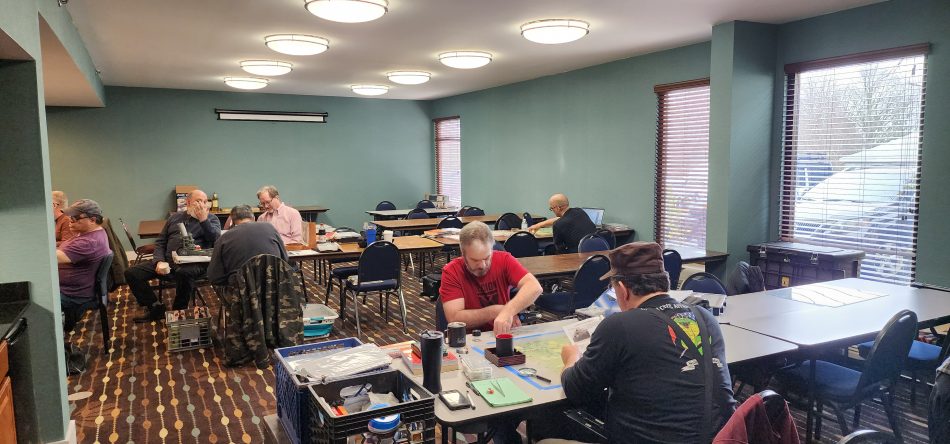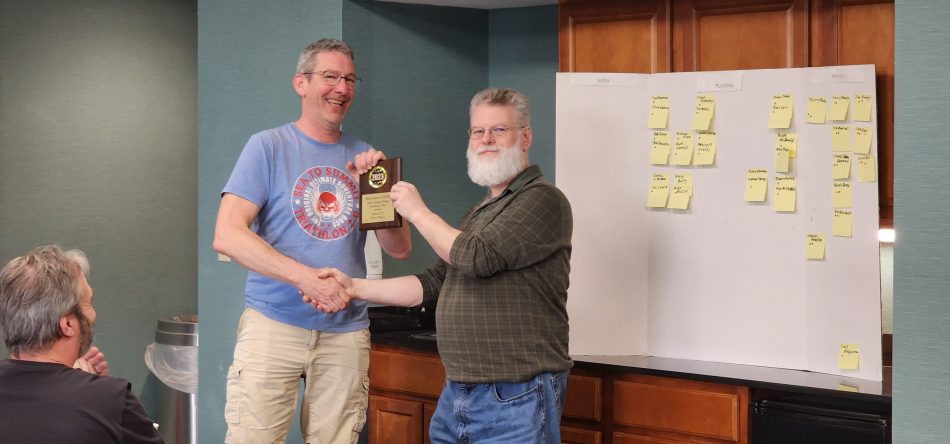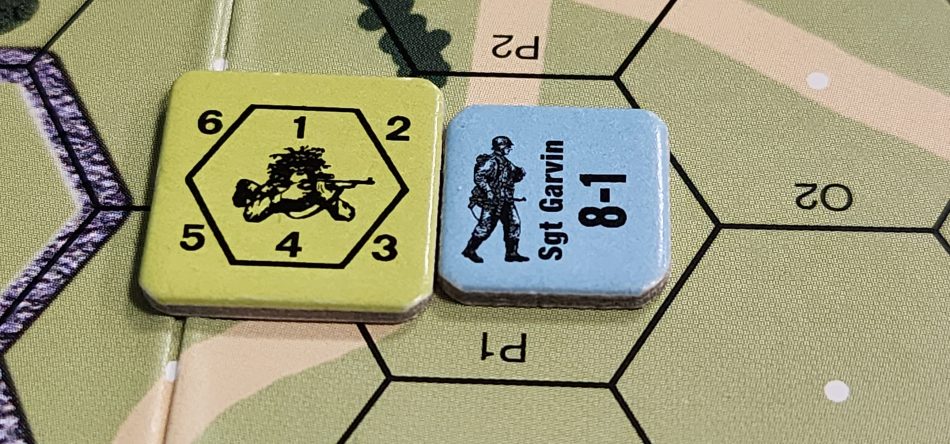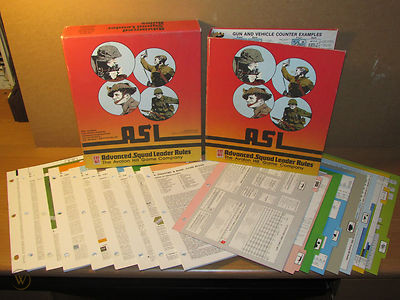The XXVII Nor’Easter: an ASL Tournament, New England Style!

By David Garvin
From March 23 to 26, I attended the 27th Annual Nor’Easter Advanced Squad Leader (ASL) tournament in Fairhaven, Massachusetts. With the restrictions of the COVID pandemic waning, this tournament saw quite a resurgence. 49 players registered in advance, and in spite of a number of late-notice cancellations, just over 50 players showed up to roll the dice in the field of cardboard combat! That said, there were actually four tournaments: the main tournament and three mini tournaments. As well, and as is becoming more common, there was some ASL Starter Kit (ASL SK) play as well.
Nor’Easter goes back to the mid-1990s, founded by Mr Bob Walden. With an emerging internet and a thirst to find other players, the idea of a tournament was floated among some of the New England ASL Players, and the Nor’Easter was born. Carl, the current Tournament Director, wasn’t sure where the first tournament was held, but it has moved in my memory from Boxborough to its current location in Fairhaven. The original Nor’Easter players are now almost 30 years older now, but in the room, there were signs of hope for future Nor’Easters in particular and ASL in general.
It’s not a state secret that the bulk of ASL players are a bit “seasoned” when it comes to the average age of its players, yet, in spite of that, it does continue to thrive. Well-attended tournaments seem to be the norm even now, almost 40 years since the game was first released, and there is no shortage of “buzz” and “chatter” in cyberspace about The Game™. As mentioned to me in conversation with a fellow staff here at NDNG, “Young” in gaming usually means “about 40”. Not so this year at Nor’Easter!

I’ve already talked about younger players in ASL and what draws them to the game. This was done by a series of interviews done online, but at Nor’Easter I was able to sit down with Christian (21), Aiden (20) and Phil (20). All three were playing in one of the before-mentioned minis and all three were enthusiastic about the game. This was clearly evident when I spoke to each of them. What follows is a summary of what we discussed.
All three are relatively new to the game. These three Zoomers (“Generation Z”) are of the first generation to grow up in a world of Social Media. All three expressed a sense of “technology fatigue”, that is, almost always facing some sort of screen. They all said that they were thirsting for something tangible, be it as simple as a physical book or, in this case, a physical game, to take them away from the omnipresent glow. Also, all three expressed a great interest in the history of the Second World War. And all three can, in this case, credit one person with introducing them to ASL: Christian’s Dad.
ASL is a game that is often derided for its complexity. It is that complexity in the depth of the rules that attracted all three to the game. All three started with ASL SK, but quickly sought more and were soon playing the full-rules game. There is also variety in ASL. One does not have to be satisfied with an infantry fight on the Western Front: one can do a tank duel in the desert or even a night attack in the jungles of the Pacific. As Christian put it, there is great reward for the effort one puts into the game. There is no “meta” game that allows one to crack a code and then play the game in a sort of “God Mode”.

Another common theme was the narrative that the game creates during play. I do discuss this in a previous article, but, as so well-stated by Christian, there is “emergent story-telling in game play”. Aiden agreed. Christian compared the unfolding narrative during the game with the complex stories that come out of a good session of Dungeons and Dragons. As an example, one could explain an event in a game using very sterile language. Or one could simply tell a story that engages the audience! Aiden suggested that it’s like watching a movie unfold before your eyes and the twists and turns are often quite unpredictable and quite entertaining.
Finally, all three understood the importance of tournament play. Yes, old-folks like me may enjoy some whisky with friends after a game, and two of these young men aren’t quite there yet, but they love the fact that every player they have met has been open and willing to help them to better understand the game. The sense of elitism that may or may not exist in some other gaming communities is not present at an ASL tournament, or at least that’s their take on things. The seasoned veterans won’t go easy on them – after all, we learn best through trauma – but their opponents do offer up helpful advice and interpretations of the rules.

In summary, all three young gentlemen agreed that it takes a lot of effort to play ASL, but in the end, it is quite rewarding! The game is complex, but that is exactly what draws them in. No two games are alike and the rules are so comprehensive that unforeseen events will almost always take place. The social aspect of in-person gaming combined with a welcoming atmosphere are exactly what these three young men all have found in ASL. My recommendation for those reading this article is this: if you seek a rewarding gaming experience that will create indelible and enjoyable memories for you, then find yourself an ASL Tournament and see for yourself. You just might find that this game is not as unplayable as it may seem!
David Garvin is an avid ASL player living in Nova Scotia, who just put 2,000 km on his car to play a dice game.

Thanks for the summary David and Christian actually has eight or so other buds who have been playing. All “utes” might I add. It’s a great game and it’s great to see a wonderful new cadre of younger players coming up through the ranks.
It’s nice to see a younger group come to play and show interest. In time, they can pass their knowledge and skills to a new generation of players.
From Mike A of the Yankee ASL Game players, the first Nor’Easter was in 1997. Info here:
https://www.yankeegamers.org/noreaster/noreaster1997.php
>>Finally, all three understood the importance of tournament play. Yes, old-folks like me may enjoy some whisky with friends after a game, and two of these young men aren’t quite there yet, but they love the fact that every player they have met has been open and willing to help them to better understand the game. The sense of elitism that may or may not exist in some other gaming communities is not present at an ASL tournament,<<
I could not agree more – I find this openness to new players one of the strengths of the ASL community!